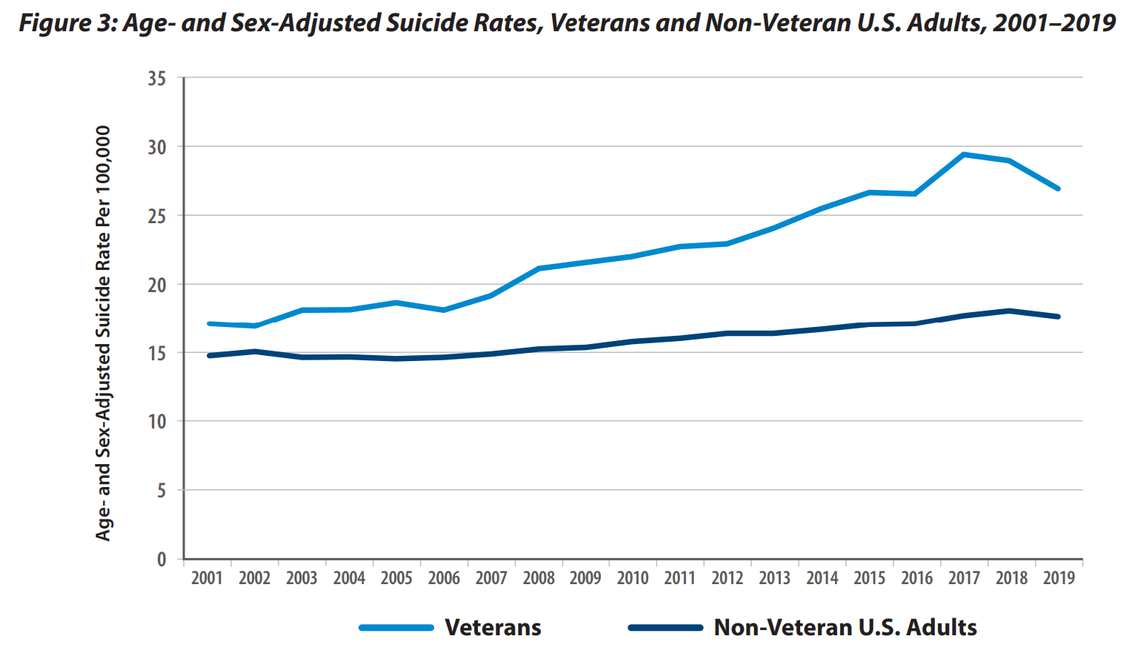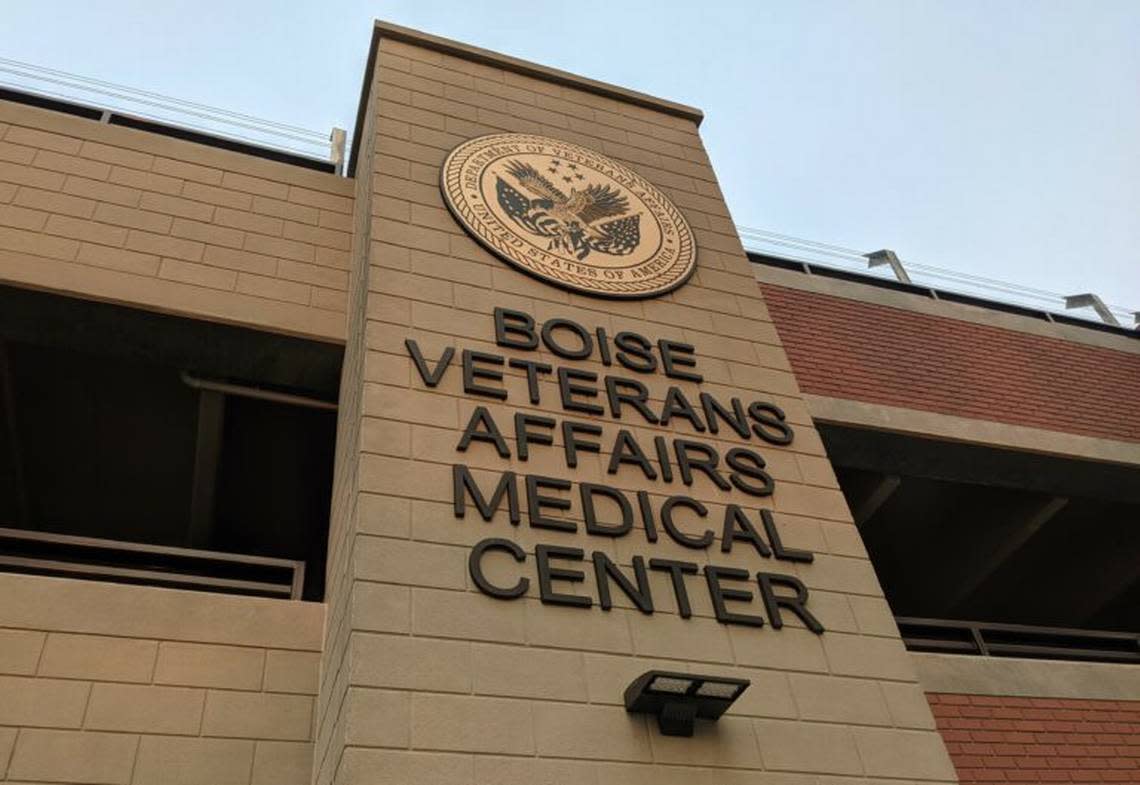Veterans are one of the most at-risk groups for suicide, but these Boise resources can help
September marked the start of Suicide Prevention Awareness Month, and Sept. 4 the start of Suicide Prevention Awareness week in the United States. A month to raise awareness about suicide began in 2008, according to The National Child Traumatic Stress Network, which provides helpful resources and information, as does the American Counseling Association.
Veterans are provided with additional resources due to the high suicide rate among them compared to the general population.
Veteran advocacy organizations like Stop Soldier Suicide estimate that 120,000 veterans have committed suicide since 2001. Researchers at Brown University noted in a study published in June 2021 that this accounts for about 23% of all deaths among post-9/11 active duty soldiers and veterans.
According to the most recent data available from 2019, veterans have a 52.3% greater chance of committing suicide than non-veterans, according to the National Veteran Suicide Prevention Annual Report.

Among individual groups, the rate of suicide among veterans in the LGBTQ+ community is seven times higher than their peers who did not serve. From 2001 to 2019, veterans between the ages of 18 to 34 had the highest suicide rate, with 44.4 veterans per 100,000 committing suicide.
Resources for veterans in Idaho
In Idaho, multiple resources are available for veterans battling personal and social trauma that could put them at a higher risk for suicide. The state had 51 veteran suicides in Idaho in 2019, with over 40 of those being men. Nearly 75% of those suicides involved a firearm.
According to the U.S. Census Bureau, there are 115,549 veterans living in Idaho, approximately 6.1% of the state’s population.
The Idaho National Guard provides tips on properly storing firearms and medications, the most common non-fatal methods of suicide.
One More Day is a veteran-operated non-profit based in Kuna that reaches out to military members before they leave the military to provide mental health assistance once they retire from active service. The organization runs two initiatives; one trains ex-military and police force members to recognize the signs of suicide and be ready to help, and another educates school teachers and students about suicide prevention.
The non-profit Ride For 22 is a Boise and Caldwell-based group that raises awareness for veteran suicide prevention and provides resources for those who have lost loved ones to suicide by taking donations and riding the streets of the Treasure Valley on motorcycles to raise awareness.
Members of the American Legion, a non-profit organization that assists veterans and has a department in Idaho, are also eligible to enroll in the organization’s Family Support Network. The network offers help to veterans and their families affected by active service and can be reached by calling the toll-free number (800) 504-4098 or applying online.
”If a #veteran gives you a suspicion or hint about harming themselves it will prompt your need to ask more questions. Yes of course it is difficult but we’ve all done difficult before”
A Legion service officer’s advice. https://t.co/hGy5NkVWUK #SPM20 #SuicidePreventionMonth— The American Legion (@AmericanLegion) September 11, 2020
Suicide prevention awareness resources
The U.S. Department of Veterans Affairs launched the Veterans Crisis Line in 2007, a 24-hour hotline available to veterans, their families and friends. The hotline can be reached by dialing 988 and then pressing 1, texting 838255, or by chatting online.
Since its launch, the hotline has answered more than 3.9 million calls and dispatched emergency services to a caller in crisis over 119,000 times, according to the Department of Veterans Affairs.
The Idaho Crisis and Suicide Hotline can also be reached by calling (208) 398-4357 or by calling or texting 988.
The VA in Boise also offers mental care, psychiatry and psychology services, programs that help veterans at risk of homelessness, treatment for addictive disorders and residential rehabilitation treatment programs, and transition management for returning veterans.

Make the Connection is another option that connects veterans with stories from other veterans and potential solutions and resources to issues affecting their mental health. The website includes videos of veterans and their family members sharing stories of their struggles and experiences and how they worked through them.
There are also several Boise-based resources and organizations. The Boise Vet Center offers private and confidential services to veterans suffering from depression, post-traumatic stress disorder and other mental illnesses, while the Idaho Veterans Network is a group that brings together veterans and helps solve problems for them and their families.
The Department of Veteran Affairs recommends several phone apps to help veterans, such as PTSD Coach, AIMS for Anger Management and Beyond MST (Military Sex Trauma).
